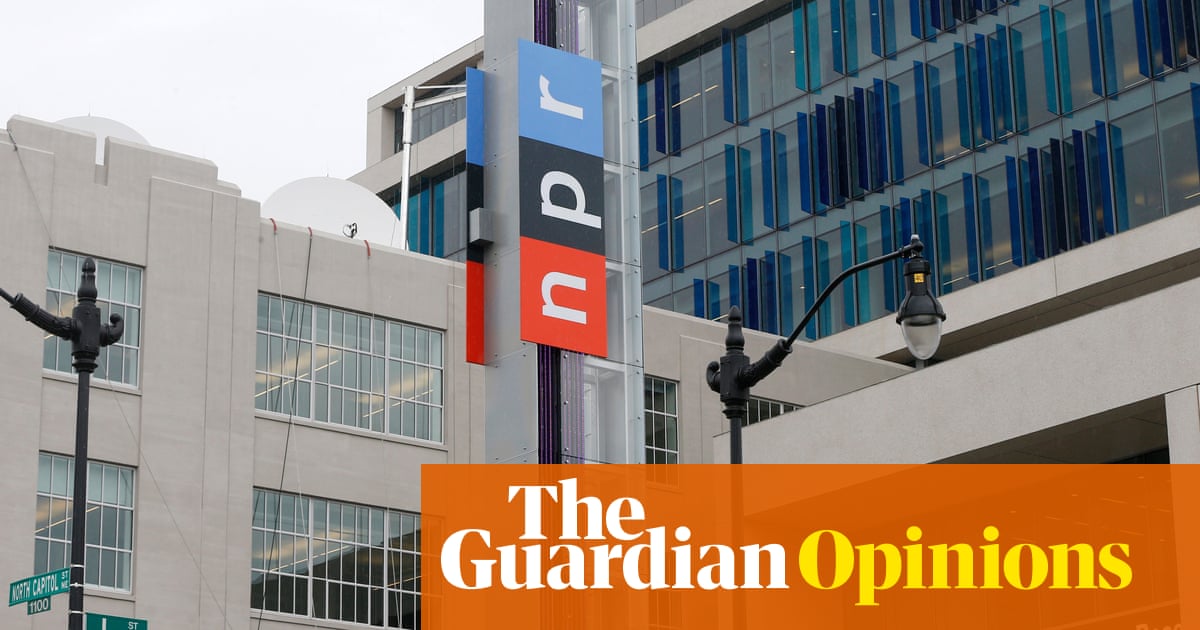It was entirely predictable that President Trump would go after public media in America. Harming the reality-based press – in every form, whether public or private – is a central part of his playbook for controlling the political narrative as he moves the country toward an authoritarian model of government.
For Trump, the message is all, and anything that gets in the way should be portrayed as an evil to society and stamped out.
Like every would-be autocrat, Trump has an anti-media playbook. His includes disparaging journalists, calling them the enemy of the people, suing news organizations and tightly controlling access to newsmakers.
All of that is well under way in the first three months of Trump 2.0, as is the effort to dismantle the Voice of America and Radio Free Europe, which are funded by the federal government.
Now, cue up the attack on National Public Radio and the Public Broadcasting System.
“Radical left ‘monsters’,” as Trump characterized them in a social media post a few weeks ago.
Then another shoe dropped. Last week,NPR itself reportedthat the Trump administration was drafting a memo to call for eliminating federal funds for public media.
It reportedly involved a “rescission” – the blocking of more than $1bn that’s already been approved by Congress for the Corporation for Public Broadcasting, the parent of NPR and PBS. The memo, in theory, would give Congress 45 days to approve the cut or keep the funding.
Though the funds have already won approval, Trump is fond of acting as though his every whim will become law. Hisrecord-setting barrage of executive ordersincludes many that are being challenged in federal lawsuits.
This entire subject, of course, is political theater at its finest. Witness, for example, the president’s ever-loyal ally in Congress, the far-right Marjorie Taylor Greene of Georgia, who has helped to lead the charge against public media.
“You can hate us all on your own dime,” Greene insisted at a congressional hearing in late March. The facts belie the theatrics to a large extent. NPR receives only about 1% of its funding directly from the federal government; however, the many small “member stations” in communities throughout the country are much more dependent on federal money. The loss would be devastating for them – and for the public, which often has no other form of news in communities that, increasingly, are becoming “news deserts.”
Congress should send Trump’s plan packing and continue to provide funding – not because NPR and its member stations are perfect, not because PBS always gets it right in its overall excellent NewsHour program that airs each evening, but because, on balance, they are a critical part of the fact-based news ecosystem necessary to democratic self-governance.
That’s especially true at a time when media companies increasingly are owned by large corporations or by individual billionaires, all with their own financial agendas. Disney owns ABC News. Jeff Bezos owns the Washington Post. Warner Bros owns CNN. Most local newspapers now are owned by big chains or by private equity companies. (The Guardian, thankfully, is different; it is owned by the Scott Trust, which operates like a non-profit, not a corporation.)
Public funding – at least in theory – should provide some distance from corporate ownership by the rich and powerful.
Should taxpayers really be paying for news? I think it’s reasonable – legitimate news is, after all, a key element of our democracy. And throughout western Europe, according to aPew Research study, public media is not only more dominant but much more trusted than private news organizations.
NPR and its member stations do a lot that’s right. They correct their errors – a litmus test for legitimate news organizations. They also continue to have an ombudsman or public editor to serve as the readers’ representative and to consider complaints.
When I interviewed NPR’s chief executive, Katherine Maher, on stage at TribFest last year in Austin, I asked if she would commit to keeping a public editor – unlike many news organizations, including the Times and the Washington Post, which have eliminated the role. She publicly pledged to do so for as long as she is in charge.
NPR also boasts many excellent journalists, who are dedicated to the facts and to getting stories right. In my own area of specialization – journalism and the news industry – there’s no American media reporter I respect more than David Folkenflik, whose work is characterized by energetic, unbiased reporting and frequent scoops.
I was not convinced by the over-the-top complaints of the former NPR business editor Uri Berliner, who railed last year against his longtime employer’s leftward drift. Neither was Erik Wemple of the Washington Post, who took a deep look at NPR’s reporting on Trump’s relationship with Russia, following Berliner’s broadside.
Wemple’sapt conclusion:NPR is no hive of lefty ideologues, as Berliner would have it, but rather is a singular news organization, one “driven by old-fashioned journo-principles, an aversion to offending anyone, and a steady propensity to annoy listeners”.
Imperfect, certainly. But just as certainly, important to the overall news ecosystem – and worthy of having Congress stand behind it, regardless of Trump’s bullying, now and in the future.
Margaret Sullivan is a Guardian US columnist
